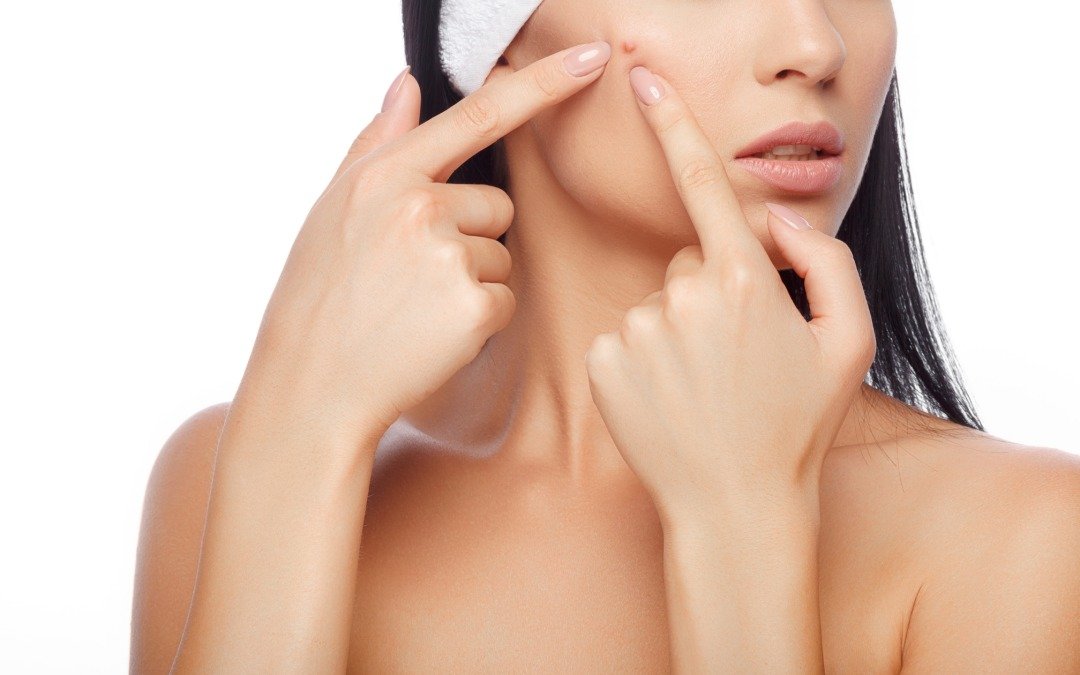Acne vs. Pimples: What’s the Difference & How to Prevent Them
If you’ve ever suffered from acne or pimples, you know how frustrating it can be. Not only are they unsightly, but they can also be painful and difficult to get rid of. In this blog post, we will discuss the difference between acne and pimples, as well as some tips on how to prevent them from occurring in the first place!
The terms acne and pimple are often misused or at times considered the same. It is beneficial to know the difference between these two so as to be able to prevent or treat them.
What is acne?
Acne is a condition that affects the skin’s hair follicles and oil glands and commonly occurs due to clogging of the pores.
Now there are 2 categories of acne: Non-inflammatory and inflammatory. Blackheads and whiteheads are considered non-inflammatory while inflammatory acne is the infected and/or inflamed pimples that are usually pus-filled and painful.
What is a pimple?
A pimple is a symptom of the disease or skin condition acne and usually affects teenagers going through hormonal changes, but they can also affect babies and even adults. They appear as inflamed, pus-filled lesions and are caused by clogged pores or worse, infected clogged pores.
What triggers acne and pimples?
There are a lot of factors that can trigger acne and pimples such as:
Genetics. If your parents had acne, your siblings or grandparents had acne, Chances are you may inherit this.
Clogged pores. Pores get clogged when dead skin cells, oil, and dirt get trapped in them. This buildup takes place underneath the skin that tries to push itself out, therefore pimples, whiteheads, and blackheads appear at the surface of not only the face but shoulders and back.
Bacteria. Excess sebum can clog pores, creating an ideal environment for bacteria to grow, leading to inflammation and acne.
Hormonal Imbalance. One of the common hormonal changes includes a rise in androgen levels. When your androgen levels rise, this triggers the production of excess sebum and a shift in skin cell activity which can lead to acne. Hormonal changes that happen during pregnancy and menopause can also trigger acne.
So are pimples and acne the same?
The answer is no because acne is a skin condition whereas a pimple is a symptom of acne.
Prevention tips
It’s safe to assume that nobody wants to develop acne anywhere on their bodies so here are some prevention tips:
Wash your face – make sure your skin is always clean. Wash your face daily with a gentle cleanser especially before going to bed. Avoid going to bed with your makeup on.
Wash your hair – regularly washing your hair can help prevent excess oils in the hair from traveling down your face and causing acne. If you can’t wash your hair, make sure that it is tied back.
Don’t touch your face – lessen the risk of spreading bacteria to your face by not constantly touching it. If you feel like you have to touch your face for whatever reason, make sure to wash your hands first.
Clean your makeup brushes – if you wear makeup, make sure that you regularly wash your makeup brushes to avoid bacteria living in them. Imagine putting a bacteria-infested makeup brush on your face… makes you shiver, doesn’t it?
Watch what you eat – yes, there are certain foods that can trigger acne, especially the ones that are high in sugar. I know, it is sad, but if you want to have clear skin, you also need to make some sacrifices. Read this post for more information on the list of food that can help you achieve clear skin.
Reduce stress – when you’re stressed, your stress hormones increase and trigger your sebum production to go into overdrive leading to an acne flare-up. Some of the ways you can reduce stress are by meditating, exercising, getting better sleep, or getting a facial from your esthetician.
Choose a lightweight moisturizer – if you have oily skin that is prone to acne, use a lightweight moisturizer and serum such as Spalina Skincare’s Balancing Citrus Creme and Epidermal Repair Serum. The Balancing Citrus Creme helps balance oily skin as well as brightens and clarifies skin while the Epidermal Repair serum contains Trioxolane which improves your skin’s immunity and helps heal acne, melasma, and rosacea.
Already dealing with acne and pimples? Read this post on how to get rid of pimples FAST. Accidentally popped one? Click here for tips on how to treat it!
Feel like you need to see a professional? Book an online consultation with licensed esthetician, Spela Hernandez for a holistic approach to skincare that will surely help you keep pesky acne at bay.

